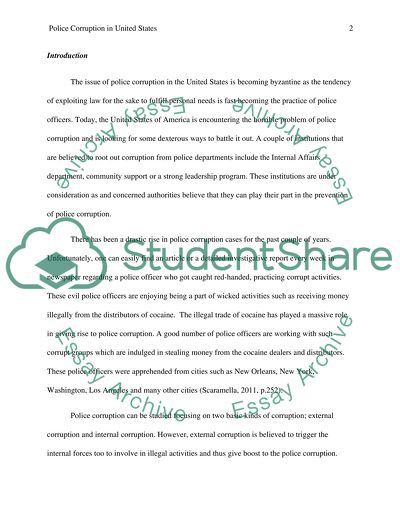Cite this document
(“Police Corruption: A History in America Essay Example | Topics and Well Written Essays - 2500 words”, n.d.)
Retrieved from https://studentshare.org/law/1402248-police-corruption-a-history-in-america
Retrieved from https://studentshare.org/law/1402248-police-corruption-a-history-in-america
(Police Corruption: A History in America Essay Example | Topics and Well Written Essays - 2500 Words)
https://studentshare.org/law/1402248-police-corruption-a-history-in-america.
https://studentshare.org/law/1402248-police-corruption-a-history-in-america.
“Police Corruption: A History in America Essay Example | Topics and Well Written Essays - 2500 Words”, n.d. https://studentshare.org/law/1402248-police-corruption-a-history-in-america.


